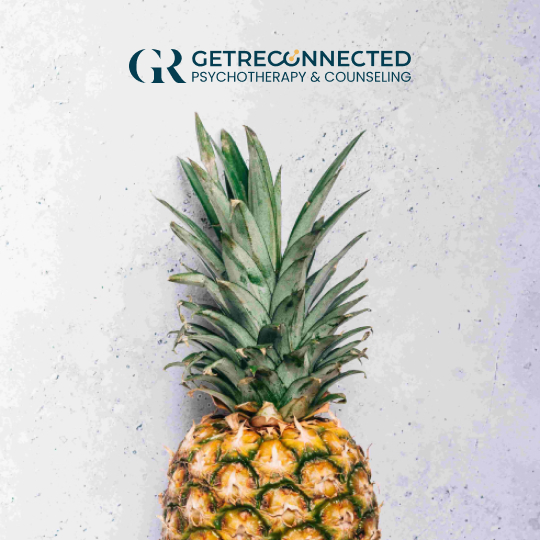Hope is such a loaded word, especially for women navigating through many losses and endless disappointments to bring new life into their world. The aspiration of welcoming a baby can make hope simultaneously a comfort and a pain.
After many losses, it might even hurt or seem counterintuitive to feel hope. But yet, we still fight with hope, and at the same time, we are longing for it. Hope can feel elusive, like a hazy star in the distant night sky. It is there, but faint, and certainly feels out of reach.
But what do we mean by hope?
In this blog, we’ll delve into the role of hope during the challenging journey of infertility treatments. We explore the essence of hope, the emotional toll of its absence, and the terms in which it sometimes slips away, along with hands-on steps to nurture and sustain a hopeful mindset.
Table of Contents
ToggleBefore we delve into the nature of hope, it would be helpful to address the emotions stemming from its absence: hopelessness and despair, which can often intertwine with feelings of grief and depression, especially during a stress-filled infertility journey that may span years.
Picture yourself in a room where the walls are slowly closing in. You feel trapped. This is what hopelessness and despair can feel like. They’re not just words or fleeting emotions. They can feel like heavy weights, making every step forward like a mountain climb.
Despair, on the other hand, goes a step deeper. If hopelessness feels trapped in that room, despair is the belief that there’s no door. It’s the overwhelming sensation that the challenges you face today will persist indefinitely without any hint of change. The word ‘despair’ comes from the Latin word ‘sperare,’ meaning hope. The prefix ‘de’ negates the verb. Thus, ‘despair’ entails hopelessness.

Understanding these despairing states paves the way to better-comprehending hope. According to Brené Brown, hope is as essential to our existence as the air we breathe. Living without hope risks choking on an atmosphere of hopelessness and despair, especially when navigating the stress of IVF treatments.
But hope is not something we feel but a way we think. In other words, hope isn’t merely a feeling—it’s a mindset. This perspective can be a lifeline when we struggle to cling to slivers of hope during our trying journeys.
Maintaining hope amid fertility struggles and pregnancy attempts can be challenging and profoundly impact family planning. Hope fluctuates based on the stage of your journey. Usually, hope is at its highest when you are in the first stages of trying to get pregnant.
Then hope dissipates as each month brings another negative pregnancy test. Yet, hope finds its way back as you begin fertility treatments, as you realize there are options and other ways to finally have that family you’ve been dreaming and waiting for.
But hope can take another dive following unsuccessful treatments or losses, leading to despair and even fear of hoping again. During these times, the search for understanding and coping mechanisms becomes vital to navigate through infertility.
At its core, the challenge is about vulnerability, often intersecting with infertility depression. After facing repeated disappointments through the IVF emotional journey, it can be a natural instinct to guard our hearts, to tuck away hope to avoid the sting of another setback. But when we push hope aside, what are we giving up?
By building walls around our emotions, we might miss out on moments of genuine connection and support from those around us. Hope isn’t just about expecting a positive outcome but also about believing in our resilience and the possibilities that still lie ahead. By shielding ourselves too much, we risk feeling even more isolated. Letting ourselves feel, even when it is tough, means we’re still open to the good moments, the small wins, and the support often right in front of us.
Each setback can feel like a weight, making it harder to see the light at the end of the tunnel. There might be moments when you question if holding onto hope is worth the emotional rollercoaster. But over time, letting go of hope can make the journey even heavier.
Despite the heartbreaks and challenges, allowing yourself to find hope again, even if just a glimmer, can make a world of difference. It isn’t about naive optimism but about believing in better days.
That shift in perspective doesn’t change the circumstances, but it changes how you view the situation. It can give you strength to face each day, to connect with others, and to remember that every storm, no matter how long, eventually passes. The work involved in undergoing treatment, managing emotions, and maintaining privacy regarding one’s journey can also keep hope off-balance.
How Do We Adopt a Hopeful Mindset?

It is natural for hope to waver now and then, especially when managing infertility stress or when you feel like giving up on getting pregnant. But staying stuck in a rut of despair can make the journey feel even longer. Think of it like getting caught in the rain without an umbrella; the longer we stand there, the wetter we get. When hope slips away, it is tempting to focus only on the setbacks and what we’ve lost.
Adopting a hopeful mindset, especially during infertility treatments, is both possible and essential. Start by arming yourself with knowledge. Understand that treatments are a process, and it’s common for them not to work on the first try.
Knowing what to expect, we can better prepare ourselves emotionally and mentally, allowing hope to find its way back, even after the most challenging days.
Four Steps to Cultivate and Sustain a Hopeful Mindset:

1. Awareness: Tune into Your Feelings
Hope isn’t just a fleeting feeling; it’s a mindset. Pay attention to the shifts in your thoughts, emotions, and even physical sensations when you feel hope slipping away. You can better navigate your reactions and responses by recognizing these signs early on.
2. Understanding: Discover Your Hope Triggers
Hope isn’t one-size-fits-all. It’s essential to understand how uniquely it manifests for you. Sometimes, our goals can overshadow our optimism, causing us to feel stuck. Remember, hope often dances between moments of excitement and disappointment. Recognizing this balance can help you stay grounded.
Let’s say every time you attend a family gathering, questions about starting a family arise, causing feelings of inadequacy or despair. However, when you read success stories or testimonials from others who’ve undergone infertility treatments, you feel a surge of optimism. Identifying these triggers – both negative and positive – can help you better navigate your emotional states.
3. Reframing: Challenge and Redirect Hopeless Thoughts
Our minds are powerful tools. When feelings of hopelessness creep in, challenge those thoughts. Ask yourself if they’re based on facts or fears. By actively reshaping our mindset, we can create a more hopeful narrative. After a failed treatment cycle, you might think: “This will never work for me.” Instead of letting this thought spiral, challenge it. Ask yourself: Is this thought based on fact or my current feeling? Reframe it to: “Many people need multiple attempts before a successful treatment. I’m doing everything possible, and each step brings me closer to my goal.”
4. Learning: Build a Stronger Hope Muscle
Think of hope as a muscle that needs regular workouts. Every challenge and every setback is an opportunity to flex and strengthen this muscle. The more you practice hope, especially during tough times, the more resilient your hope becomes.
Remember, it’s not about ignoring the challenges but believing in your ability to overcome them.
In the complex process of infertility treatments, hope becomes more than just a word. It is a lifeline. While the path is undeniably filled with highs and lows, the mindset we cultivate often determines our experience. Engaging in communities where you can share experiences, learn from others, and stay updated with news related to infertility can also be a subtle beacon of hope and support during such trying times.
Exploring infertility blogs, reading through an infertility journal, and discovering infertility journey stories can provide comfort and a wealth of knowledge and understanding from those who have walked a similar path.
By recognizing our emotional triggers, understanding our unique relationship with hope, and actively reframing our thoughts, we can navigate this journey with resilience. Addressing and acknowledging infertility depression is also crucial, as mental health is vital to managing the turmoil during treatments.
Remember, it’s about reaching the destination and nurturing our well-being along the way. As you face each challenge, know that hope, knowledge, and support can be your most powerful ally.
Feelings of hopelessness and despair can be overwhelming, but you don’t have to face them alone. Our therapy services are here to help you navigate through these emotions and support you in your path. If you have any enquiries or need further assistance, do not hesitate to contact us – we’re here to help you every step of the way.

Delia Petrescu
Founder & Director
BA, MA, Registered Psychotherapist (RP)
Delia Petrescu, MA, RP is a Toronto-based psychotherapist, psychometrist, and the founder of Get Reconnected Psychotherapy and Counselling Services. She provides virtual therapy sessions Ontario-wide. Delia has experience working with adults struggling with adjustment difficulties, depression, anxiety, and trauma. She specializes in integrative and holistic care for those coping with life crises such as fertility concerns. Read more about Delia

Two-Week Wait After IVF: 13 Tips To Survive the Toughest Part of Fertility Treatments
If you’ve been trying to get pregnant for a while and recently went through IVF, you know that waiting to find out if it worked

Finding Hope Through The Infertility Journey
Explore the emotional landscape of infertility at Get Reconnected. Learn how to cultivate hope and resilience during your fertility journey.

Surviving Infertility: Coping with the Ups and Downs
Learn effective coping strategies for the emotional challenges of infertility. Discover support and guidance for your journey at Get Reconnected.





